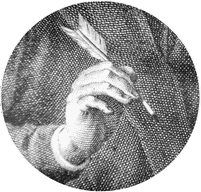The School of Salamanca
A Digital Collection of Sources and a Dictionary of its Juridical-Political Language

Contact
Feedback, comments, critique.
Project Team
Profiles of the project team, cooperations, advisory board.
Contribute
Documents for authors
Submit a working paper.
Edition Guidelines
Description of the edition principles and the encoding of the texts.
Source Code
The source code of our web application in an external GitHub repository.
Legal Information & Privacy
Privacy policy of our webpage and legal information (German only).
Project Description
Digital Collection of Sources
The Digital Collection of Sources (https://www.salamanca.school/works.html) contains full texts and digital copies of central texts of the School of Salamanca as well as important reference works on which the Salmantine authors relied when writing their books. The works of the Salmantine authors are generally represented by their first printed edition. The collection of full texts is constantly growing as new editions are published.
The online edition is made accessible through a full-text search (https://www.salamanca.school/search.html). The search in the Latin and Spanish texts is lemmatised, i.e. a search for "lex" will also return hits for "legis, lege, legem, leges, legum, legibus". The orthographic peculiarities of early modern Latin and Spanish are also largely covered by the search function. For example, a search for "verbum" will also return hits for "uerbum" or "uerbvm".The full texts can be downloaded in various formats. For example, complete works can be downloaded in .pdf format. In addition to the full texts, other works in the Digital Collection of Sources are available as digital copies of the original prints (facsimiles), enriched with metadata.
Dictionary of the Juridical-Political Language of the School of Salamanca
The Dictionary provides reliable, source-based information on the meaning of central terms of the juridical-political language used by the authors of the School of Salamanca. It is conceived as a reference work whose lemmata are taken from the Latin and Spanish sources; its articles offer concise, precise and source-centred descriptions and at the same time serve as an entrance aid to the sources themselves.
The English-language Dictionary articles will be published successively on the project's website and are linked to the sources in the Digital Collection of Sources.


